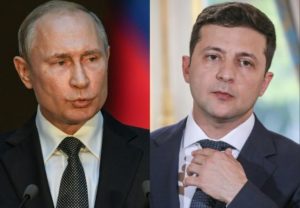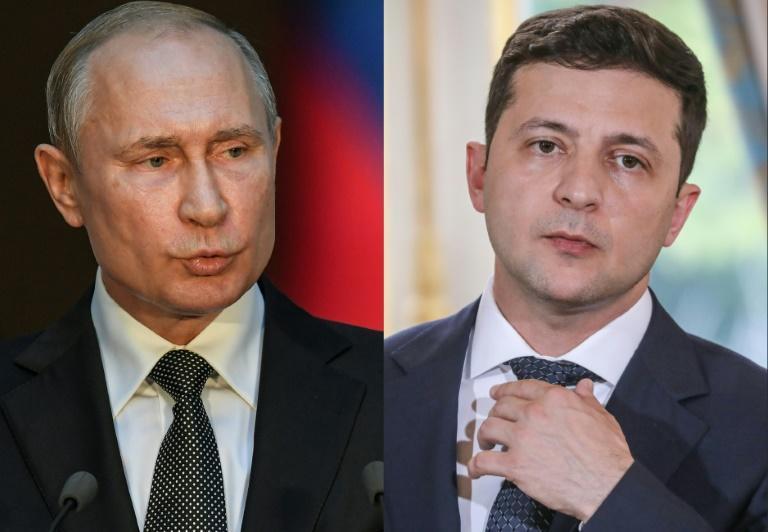
Something very strange is occurring in Russia. Journalists working for state-controlled media channels are beginning to question Russia’s military activities in Ukraine. This takes the form of asking who is responsible for Russia’s on-going failures both in the conflict zone and in the failed implementation of partial mobilisation.
This questioning goes hand-in-hand with the mass exodus of highly educated Russians which commenced on 21 September 2022 with the announcement of some form of ‘partial mobilization’ of military reservists. This partial mobilization has been disorganised, chaotic and arbitrary. Even President Vladimir Putin has admitted that there have been implementation mistakes.
The first mistake was the decision to implement partial mobilization, and the second was to implement a poorly formulated initiative. The announcement of partial mobilization led to anti-war protests in over 30 Russian towns and cities with citizens being arrested for participating in unsanctioned anti-war protests.
Remember that this is Russia where protesting against the state comes with negative consequences for those daring to challenge state authority. It has been estimated that more Russians have fled abroad than have been enlisted.
Thus, Sergei Shoigu, Russian Defence Minister, has stated that more than 200,000 people have been conscripted into the Russian army since 21 September. Nevertheless, more that 200,000 Russians have fled to Kazakhstan, and another 69,000 have crossed the border into Georgia whilst 66,000 have entered the European Union. These are astonishing figures.
On 21 February 2022, Vladimir Putin announced that the Russian government would recognize the Ukrainian separatist regions of the Donetsk People’s Republic and the Luhansk People’s Republic as independent.
In this speech Putin explicitly denied that Ukraine had ever had any real “statehood” and proclaimed that Ukraine was an integral part of Russia’s “own history, culture, spiritual space”. The context for this is that when Putin returned to presidential office in 2012, he stated that one of his primary tasks would be the reintegration of post-Soviet space.
Putin has created a major problem for the Kremlin, and this is a problem of his own making. Statehood is based not just on a territory that is recognised under international law but is also founded on a set of institutions that are respected by citizens and other states, John R. Bryson – Professor of Enterprise and Economic Geography, University of Birmingham, said.
Once the institutions of a state are no longer respected by its citizens, and by other countries, then that state ceases to be viable. There is an interesting paradox here. Putin’s attempt to integrate Ukrainian territory into Russia has been a fundamental driver in enhancing respect and recognition of Ukraine’s statehood.
Ukrainian citizens have become more Ukrainian and countries across the globe, with some few exceptions, are engaging in activities that directly acknowledge the continued existence of the Ukrainian state. Ukraine is now much more of a state now than it was on 21 February 2022.
Russia is experiencing an unusual process of statehood in reverse. By October 2022, one can argue that Russia’s existence as a state is threatened. This threat comes not from the West or from Ukraine but from the Kremlin, or by the actions and strategies of all associated with Putin’s special Ukrainian military operation. There are three important signs of the on-going erosion of Russian statehood.
First, a core sign comes from the more than 300,000 citizens who have decided to flee Russia. These are citizens who no longer recognise the Kremlin’s authority. Effectively, these are Russian citizens in name only rather than citizens who stand side-by-side with the strategies and actions of Russia’s state institutions.
Second, the on-going questioning of the Kremlin’s actions by representatives of Russia’s state-controlled media highlights that there is a significant problem emerging within the Russian state. Here, it is important to remember that those employed by the state-controlled media are part of Russia’s state institutional structure.
Third, Russia is classified as an emerging or developing economy and ultimately might become an emerged economy. Russia is,
however, an emerging economy in reverse or is perhaps better defined as the first of a new form of national economy – a de-emerging economy or a declining or shrinking nation. The Kremlin is driving this de-emerging process.
On the one hand, the Kremlin’s illegal activities in Ukraine have led to sanctions being imposed by other countries and this has been combined with the mass withdrawal of foreign direct investment from Russia. On the other hand, governments, companies, non-governmental organisations, and individuals no longer respect the institutions of the Russian state. Too often the institutions of the Russian state have demonstrated that they say one thing and do another.
All this means, that the Kremlin has three battles to control or win. First, there is a battle for the hearts and minds of all Russian citizens. This is a battle that Russia is losing on many fronts and will continue to lose. This battle can only be won when the institutions of the Russian state demonstrate that they care for the interests of the Russian people – and all people rather than the favoured few.
This should place people first over any concern with the re-integration of post-Soviet space. Second, there is an on-going battle regarding Russia’s standing in international affairs. Russia continues to lose this battle on so many fronts and this includes its current standing amongst most members of the United Nations.
Third, there is the on-going special military operation in Ukraine. Here, it must be remembered that Russia has failed to override the Ukrainian state and this failure commenced on 24 February 2022. This failure is not about acquiring and holding Ukrainian territory, but one based on a set of actions that have enhanced rather than undermined Ukrainian statehood.
Putin has very few options left. He continues to try to find some positive outcome to his special military operation. The deployment of tactical nuclear weapons in Ukraine would only cement Russia’s failure on three fronts – within Russia, international governmental and corporate relations and within Ukraine. Putin has argued that the United States created a nuclear precedent by bombing Japan. Nevertheless, this is no precedent for deploying nuclear weapons on what Putin claims to be Russian territory.
Deploying nuclear weapons close to Russian territory would be another tragedy for the Russian people as Russian citizens would be directly impacted. It would be a disaster for Ukraine but would be catastrophic for the institutions of the Russian state.
The on-going tragedy of the Russian people will continue as long as the Kremlin is only concerned with winning the battle for Ukrainian territory whilst failing to appreciate that it is losing on two much more important fronts. It is these on-going failures that will continue to undermine Russian statehood.


